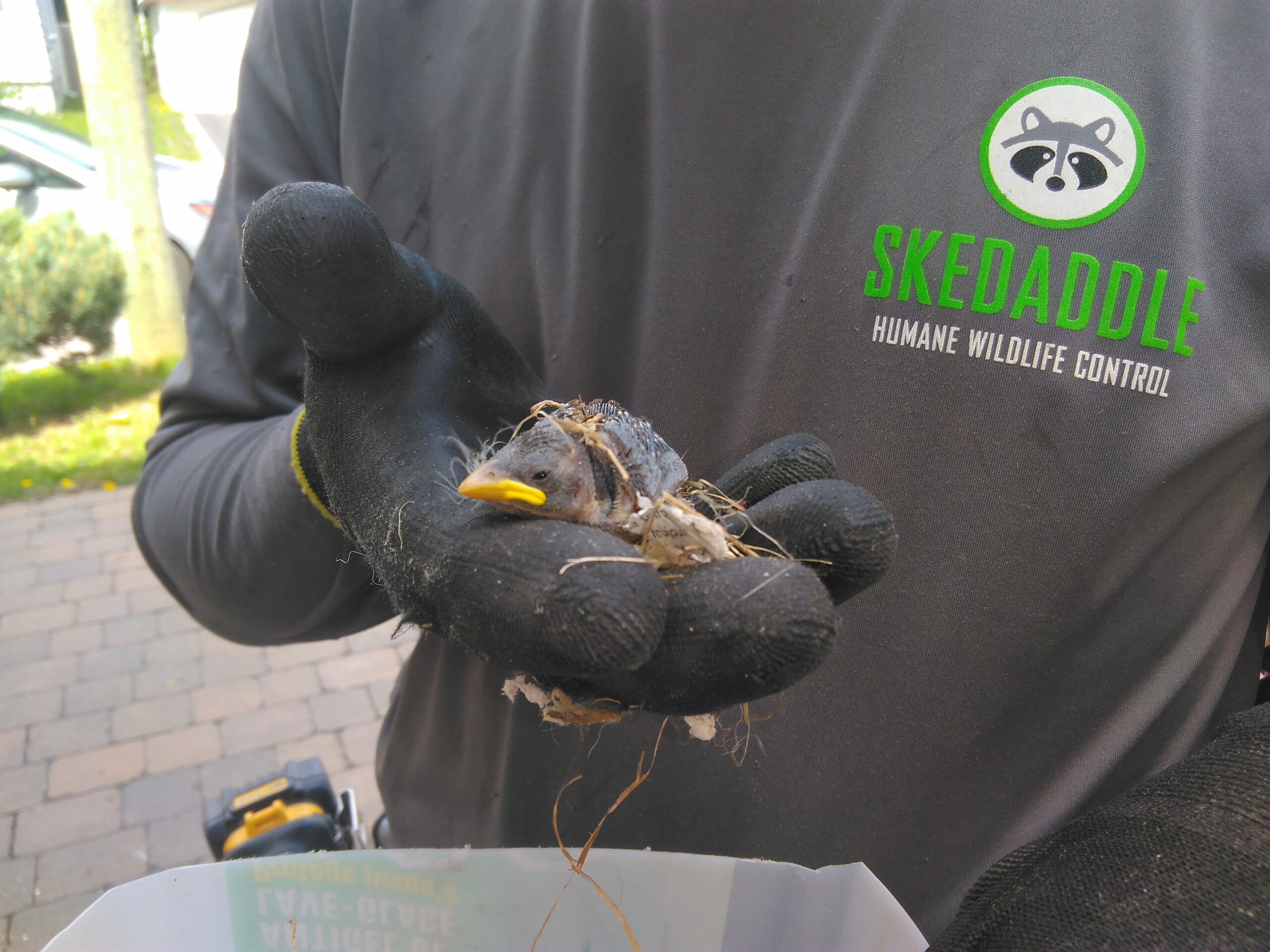Birding is a popular pastime, especially in the winter when most of nature seems to be sleeping. Feeding wild birds can make them show up in your backyard for more enjoyment. The question is whether feeding wild birds is good for them and you. There are a lot of things to consider if you’re hanging up bird feeders to attract some of the birds that don’t fly south for the winter. Canadian winters can get harsh. Supplemental food can help birds through the winter, but you should be responsible when feeding birds. If you’re overrun by rodents who are attracted to bird food, you should contact our wildlife control team in Whitby.
Winter Bird Populations
Cardinals and blue jays are some of the brightest birds you may notice over the winter, simply because they are so colourful against the snow. They enjoy black oil sunflower seeds, which provide protein and fat for the cold. Black-capped chickadees, finches and white-breasted nuthatches also enjoy the black oil sunflower seeds, not the striped kind. The nuthatches and brown creepers also like suet, another popular item on the birdfeeder buffet in winter, again providing fat and calories during the months when food can be scarce.
Winter Feeding Tips
Winter bird feed should be higher in fat because it helps the birds survive the cold. Although most birds have more sources of food than your feeder, most birds stay in a fixed territory through the winter. They come to depend on your food source, especially when an ice or snowstorm covers the trees where they find insects to feed on.
Feed the birds, and they will come. When the food source drops off, they will leave. Birds are adaptable. They will find other food sources if yours dries up. However, you should consider the long-term effects of putting out bird food in the winter.
What’s the Problem With Feeding Birds in the Winter?
Most people want to attract birds when bird feeding, forgetting about other wildlife that could be attracted to their yard. Skunks, raccoons and mice scrounge for food on warmer days, looking for sunflower seeds that are on the ground. If you don’t clean up your birdseed, you could find yourself with an invasion of four-legged animals who think they’ve hit the mother lode of buffets. Once they get into your yard, your home is next.
How Do You Feed the Birds and Prevent Wildlife?
One recommendation to reduce wildlife is to get bird feeders that are rodent-resistant. Some bird feeders have a cage built around the feeder to let small birds get through, but the cage prevents large birds and small animals from eating the seeds. Cleaning up under your feeder every few days can reduce the seeds that draw ground feeders. Use specific feed in specific feeders to decrease waste. Avoid millet in the winter because it makes a huge mess and can draw wildlife in the winter and again in the spring when it grows into weeds.
Should You Feed the Birds Over the Winter?
Bird watching is a great way to stay connected with nature in the winter when it seems so gloomy and dark. If you do it responsibly, it can give you hours of pleasure from the comfort of your home. It does have its drawbacks. You can’t just keep putting out seed without cleaning up.
If you do have unwanted wildlife at your bird feeder, don’t try to deal with the animal on your own. The professionals at Skedaddle Humane Wildlife Control know how to safely remove wildlife to prevent disease and keep your family safe. Contact us to help you find solutions for the wildlife on your property.



